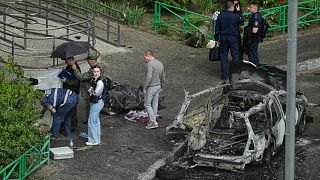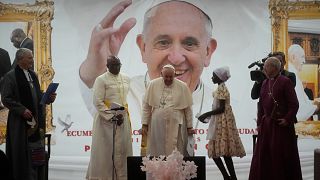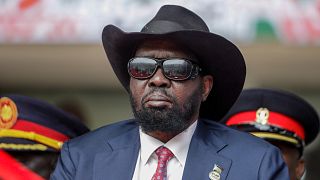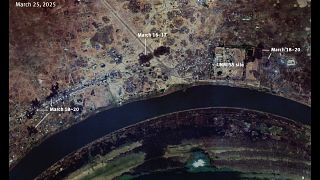South Sudan
The chorus of children’s voices coming from teacher Koat Reath’s classroom grows louder and louder, threatening to drown out other classes at his primary school in Jewi camp for South Sudanese refugees in western Ethiopia.
The 41-year-old has his pupils on their feet, clapping and reciting the alphabet in Nuer, their native tongue, followed by a few phrases that are sung with gusto in English.
He says children learn better when their lessons are lively and fun.
With almost a decade of teaching under his belt, Koat knows a thing or two about holding young students’ attention – though this can be difficult in Jewi, where more than 100 children are crammed into one classroom at any time.
Koat has spent the summer break providing extra classes to his students under an initiative by Plan International and other partners to help children catch up on schooling they missed because of fighting in South Sudan.
The father of five, shares much more than a love of learning with his young pupils. Like them, Koat is also a victim of a war that has made refugees of more than two million South Sudanese. He and his family fled to Ethiopia in 2015 after their home in Jonglei state was burned to the ground.
Conflict
South Sudan’s conflict has had a particularly devastating impact on children. In Jewi camp, which is home to 54,000 South Sudanese refugees, as many as two-thirds are children.
Not only have they lost their homes and seen their relatives killed, but years of violence have also prevented them from having an education. Some never had a chance to go to school in the first place, and many who did, have dropped out altogether.
“I like how he teaches, and he is very funny. I like that,” said Nyamani Pur, a refugee student.
“I’m teaching these children to be the doctor, the president and the pilot, so this is my role to volunteer to teach these children to build a good future in South Sudan, to do a good thing,” said Reath.
Painfully aware of the disadvantage the children face, Koat and his colleagues are determined to do what they can to help close an education gap that currently means that only two-thirds of South Sudanese children in Ethiopia have access to primary school.
The vast majority — about 86 percent, do not and cannot continue to secondary school.
The shortage of school rooms, qualified teachers and teaching material also present major obstacles to accessing an education for South Sudanese refugee children.
“I am tired, but I cannot say that I am tired because I am forwarding the people to be like me or to be like other people around the world,” said Reath.
Students learn in their native language, Nuer and also in English – while South Sudanese teachers work to adapt to the Ethiopian curriculum.
Unlike Koat, many quit saying that the 805 birr (US$27) they receive monthly as an incentive to teach is not enough.











01:00
Displacement crisis deepens: UN warns world at breaking point
01:16
Africa mourns Pope Francis, a voice for peace and justice
00:49
Teachers strike shuts down schools across Cameroon
02:35
Sudanese Refugee Children Find Hope in Libyan School
01:05
Sudan: fire in Darfur refugee camp destroys 50 houses, no casualties reported